The crowd were all laughing when a group of young girls answered, kiling-kiling (bell) as Kafye Blaan Board of Trustee Maribeth Farnazo asked the 147 youth participants of the 1st Malungon Indigenous Peoples Youth Forum to identify the photo in the screen. The photo was a "kmagi," a traditional necklace made of gold and usually worn by the fulong datu or wise men and bai or princesses of the royal family. The kmagi were among the most treasured possessions of our great grandparents as they were often given as a gift or dowry.
The answer of the group of young indigenous girls was a concrete proof on how detached the younger generations were with our cultural identity. The assessment tagged as "How Well Are We with our Cultural Identity?" revealed that less than 20% of our indigenous youth have basic information about our cultural identity. They have pointed discrimination, illiteracy, inter-marriages, adoption of migrant language at home, lack of cultural awareness and weak appreciation of our culture as great factors why they have less knowledge about their cultural identity. They had also stressed out that the major challenges they are facing right now are loss of language, dresses, musical instruments, ancestral lands, and traditional skills; the weakening practice of customary laws and the declining cultural integrity. On the other hand, at the end of the forum they were able to come-up with personal realizations and measures to address the challenges. They wrapped up the forum in a manifesto,
We, the 21st indigenous youth commit to...
speak the language,
relearn and live our positive cultural traditions,
learn and practice our traditional skills,
respect and strengthen the use of customary laws,
and above all educate and empower ourselves as young people for us to become strategic actors of this changing
world and not as subjects of development nor subjects of tribalized tourism.
The forum ended with a sounding kiling-kiling, but it was good to note that it was a kiling-kiling that awakened them, raised their awareness on their own cultural roots and inspired them to take actions to ensure the sustainability of our tribe. Thank you to that sounding kiling-kiling. Click this link for Blaan costume description.
Special thanks to Alcantara Foundation for the snacks and materials.
The answer of the group of young indigenous girls was a concrete proof on how detached the younger generations were with our cultural identity. The assessment tagged as "How Well Are We with our Cultural Identity?" revealed that less than 20% of our indigenous youth have basic information about our cultural identity. They have pointed discrimination, illiteracy, inter-marriages, adoption of migrant language at home, lack of cultural awareness and weak appreciation of our culture as great factors why they have less knowledge about their cultural identity. They had also stressed out that the major challenges they are facing right now are loss of language, dresses, musical instruments, ancestral lands, and traditional skills; the weakening practice of customary laws and the declining cultural integrity. On the other hand, at the end of the forum they were able to come-up with personal realizations and measures to address the challenges. They wrapped up the forum in a manifesto,
We, the 21st indigenous youth commit to...
speak the language,
relearn and live our positive cultural traditions,
learn and practice our traditional skills,
respect and strengthen the use of customary laws,
and above all educate and empower ourselves as young people for us to become strategic actors of this changing
world and not as subjects of development nor subjects of tribalized tourism.
The forum ended with a sounding kiling-kiling, but it was good to note that it was a kiling-kiling that awakened them, raised their awareness on their own cultural roots and inspired them to take actions to ensure the sustainability of our tribe. Thank you to that sounding kiling-kiling. Click this link for Blaan costume description.
Special thanks to Alcantara Foundation for the snacks and materials.
Photo Credits: Edwin Espejo
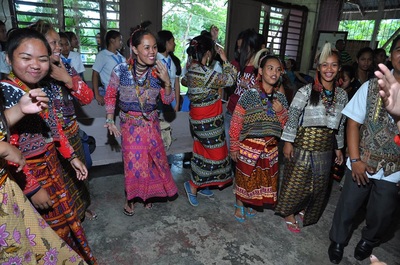
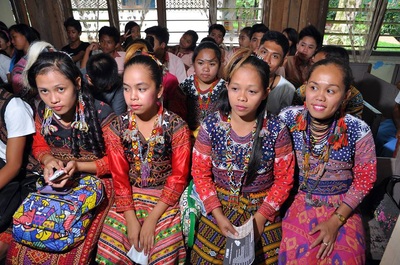
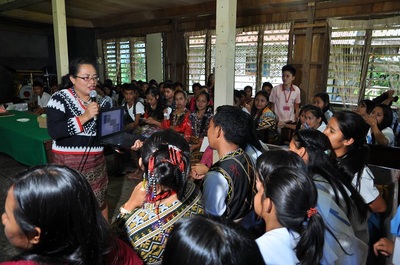
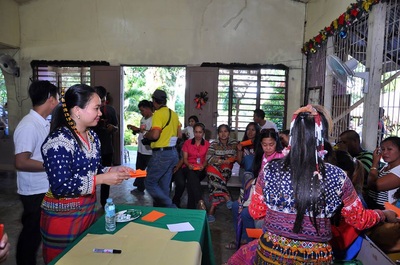
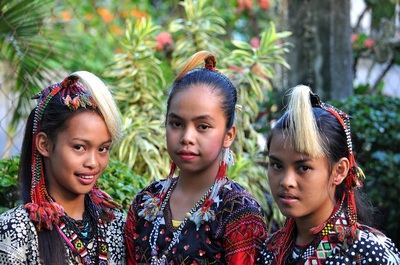
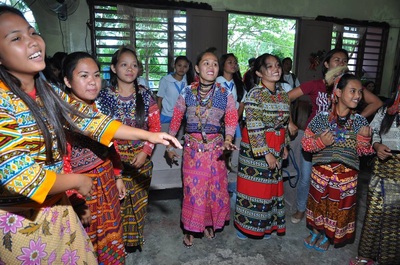
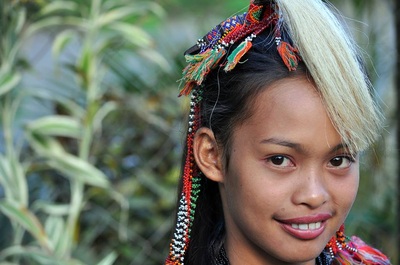
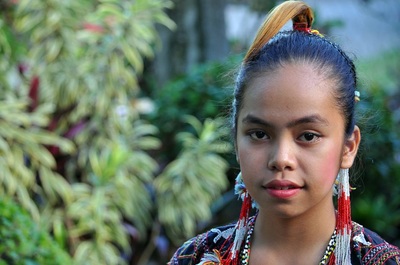
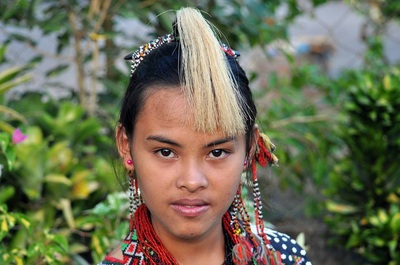
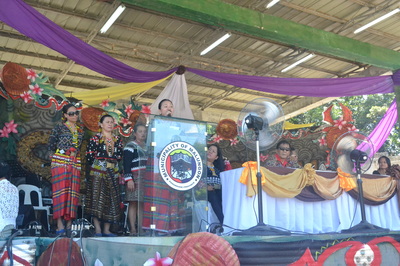
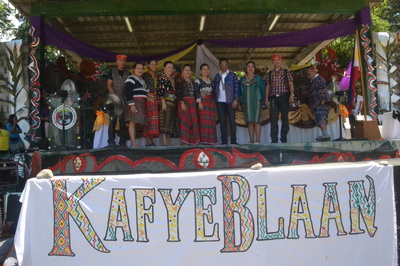
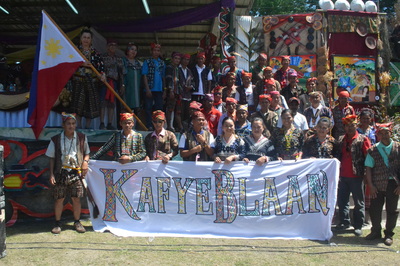
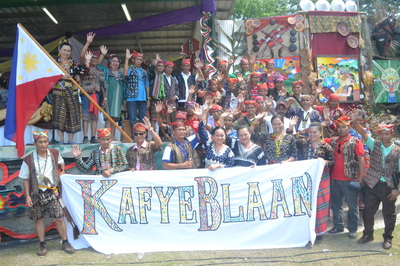
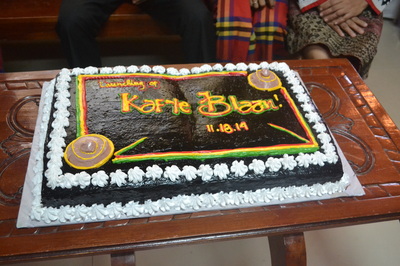
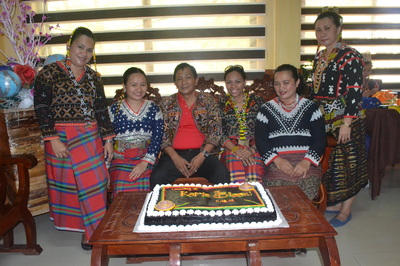
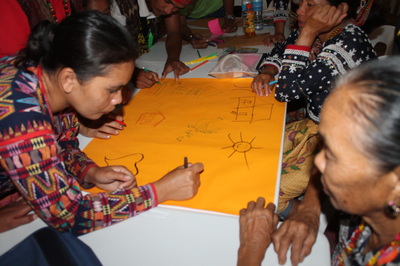
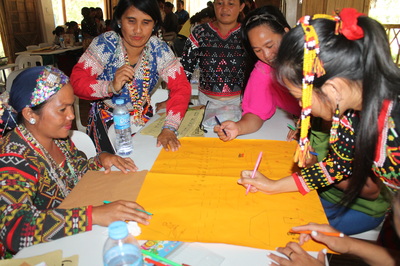
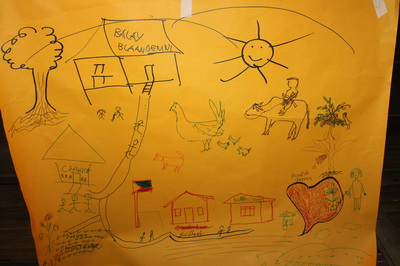
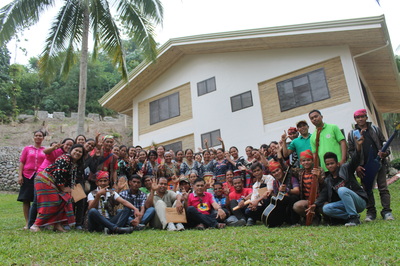
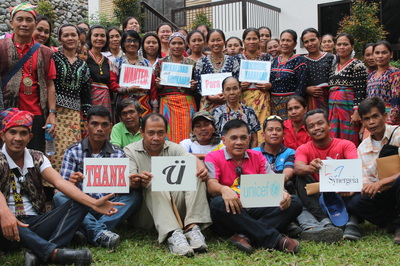
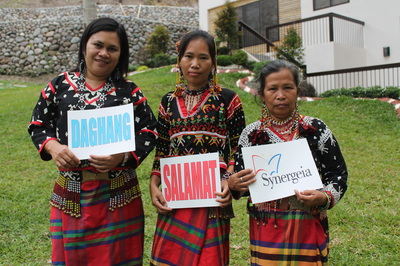
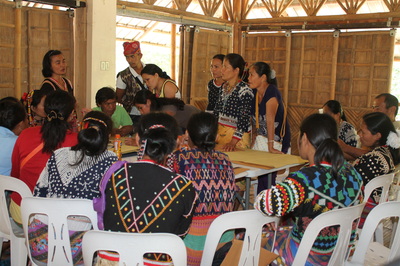
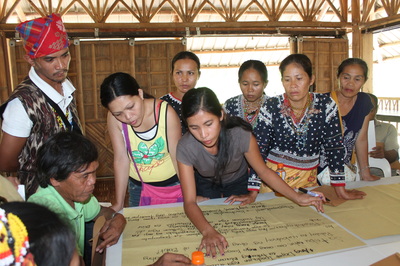
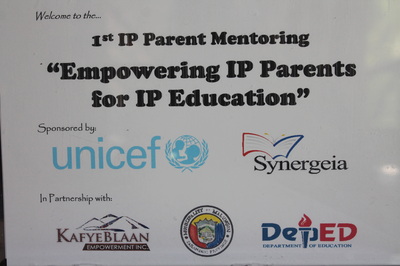
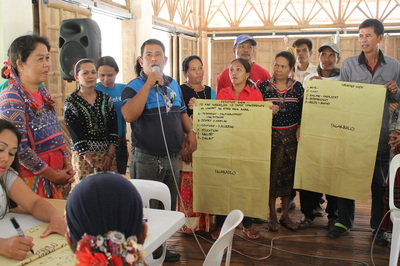
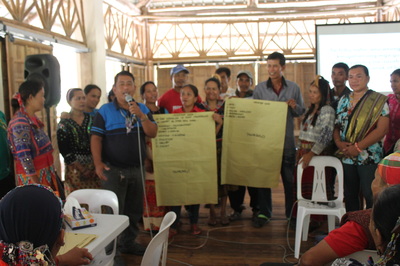
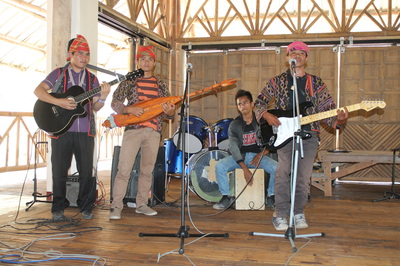
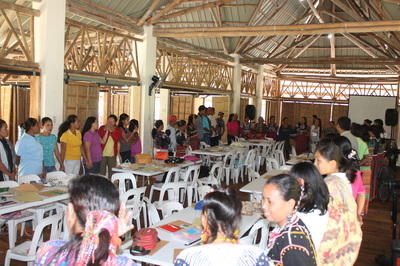
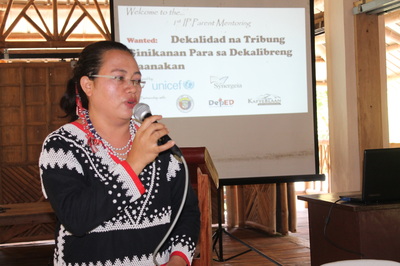
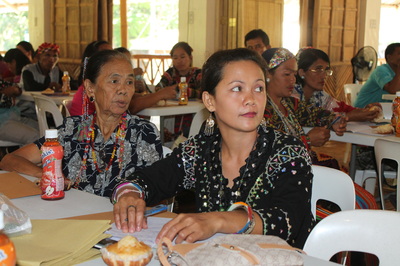
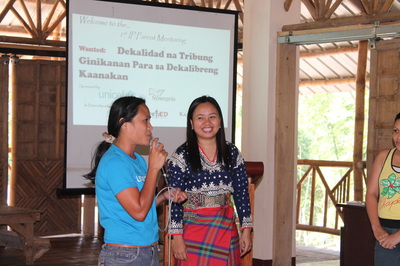
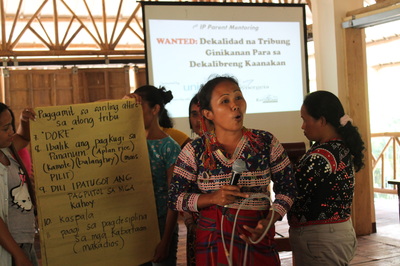
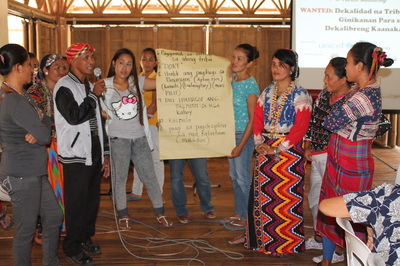
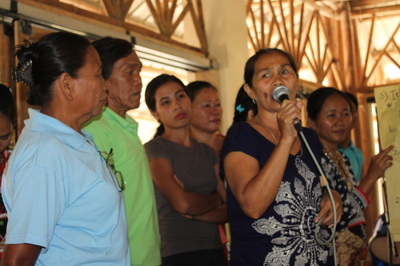
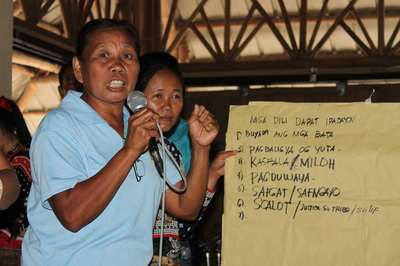
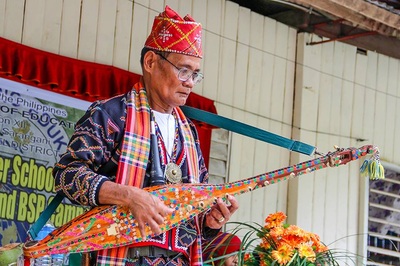
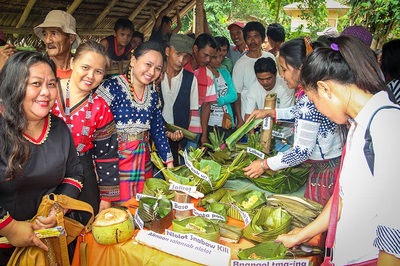
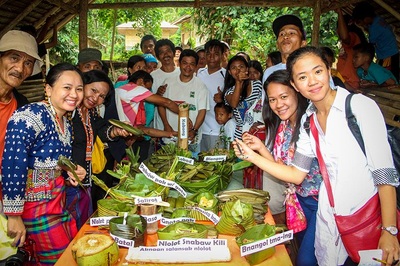
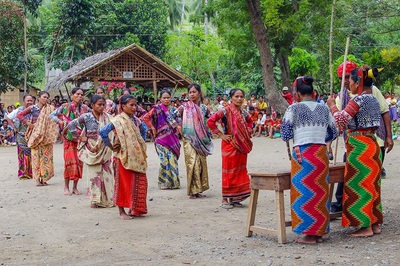
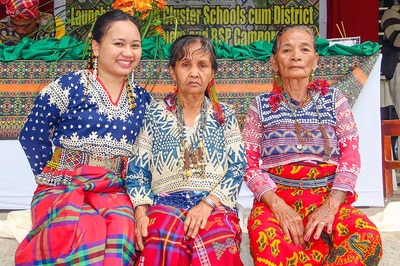
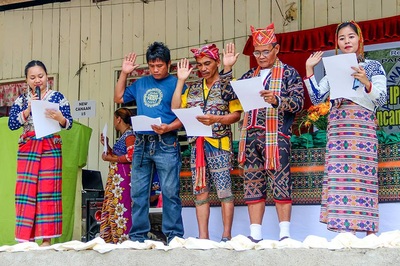
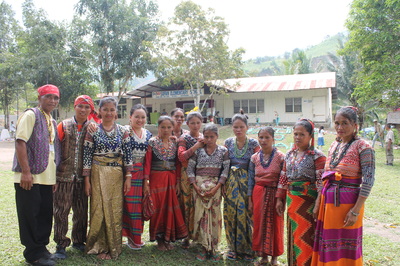
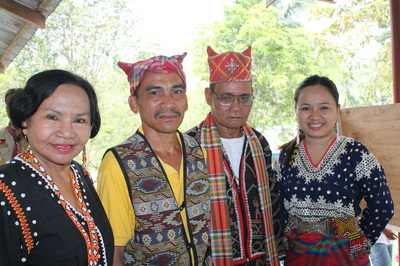
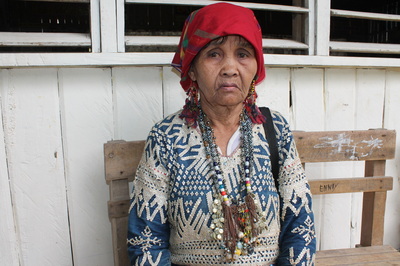
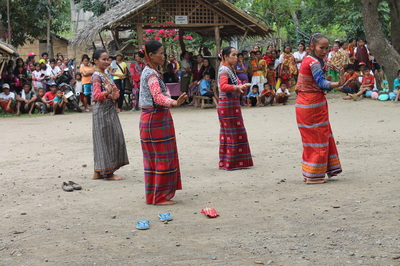
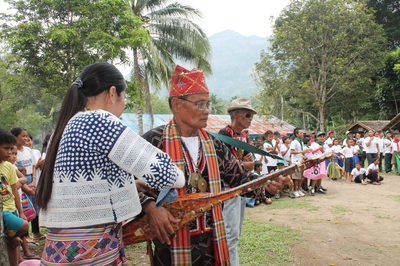
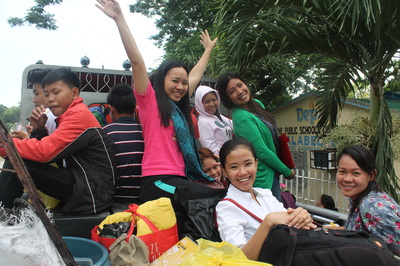
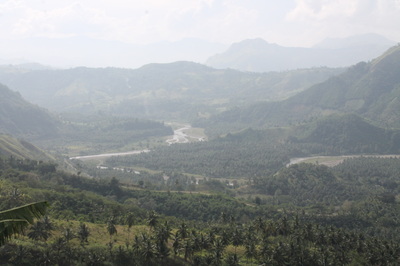
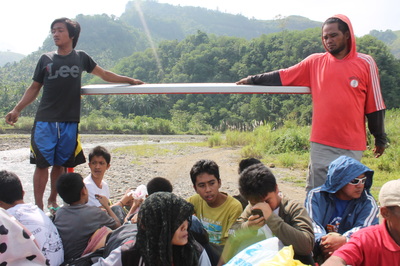
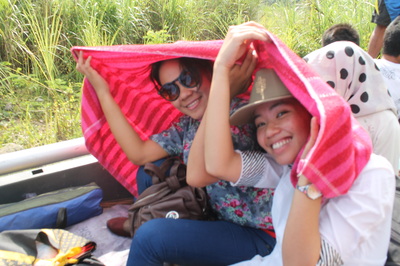
 RSS Feed
RSS Feed
